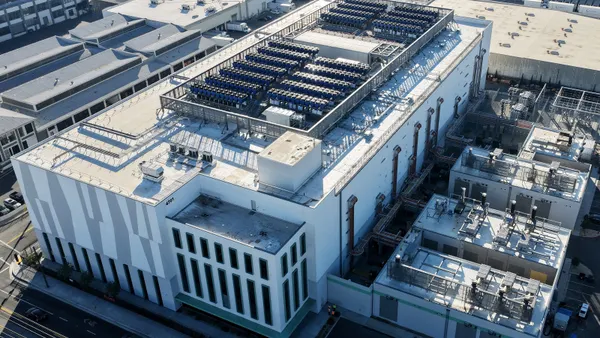Dive Brief:
- New Jersey's solar market could be on the verge of its second collapse experts warn, as the state's Solar Renewable Energy Credit (SREC) program prepares to wind down and legislatively-set cost caps on renewable energy create complications.
- Officials at the Sierra Club say the law must be changed to avoid a market crash in 2020 when cost caps kick in, and a stopgap replacement for the expiring SREC program is necessary to avoid near-term job losses.
- Earlier this year, Democratic New Jersey Gov. Phil Murphy signed legislation raising the state's renewable portfolio standard (RPS) to 50% by 2030, but with cost caps that led to doubts about the law's effectiveness.
Dive Insight:
It was only six years ago that New Jersey's solar market — second largest in the country at the time — collapsed under uncertainty generated by the SREC program. The solar sector had 10,000 employees in the state, but that figure dropped to just 5,500 before officials could stabilize the program.
Now, Sierra Club says the market is rebounding and is seventh in the country for solar installations. Employment is back up to 7,000, the group says. But the SREC program shutdown has again brought uncertainty, and a replacement will need to be prepared in as little as six months.
At a stakeholder meeting last week, solar officials told the New Jersey Board of Public Utilities (BPU) that the best thing may be to develop a fixed-cost system that is very similar to the SRECs, due to the limited time. But cost caps set to start in two years will remain an issue.
"We may not be able to fix the market until after a crash ... That's why it's critical for the BPU to work on a program now and to get rid of the cost cap," Jeff Tittel, director of the New Jersey Sierra Club, said in a statement. "Even if we fix the program, we'll hit the cost cap in 2020 because of the new law and the market will crash again. We need to change the law so this doesn't happen."
Public Service Electric and Gas, the largest electric utility in the Garden State, last month unveiled a $4 billion clean energy plan aimed at helping New Jersey meet its environmental goals while also reducing customer bills. The utility's Clean Energy Future proposal includes investments in energy storage, smart meters and electric vehicle infrastructure, but its largest component by far is energy efficiency.
The SREC program is required to shutter once 5.1% of the kWhs sold by the state's electric power suppliers are coming from solar electricity connected to the state's distribution system. Absent hitting that cap, the state's clean energy law requires the closure of the SREC program no later than June 1, 2021.












